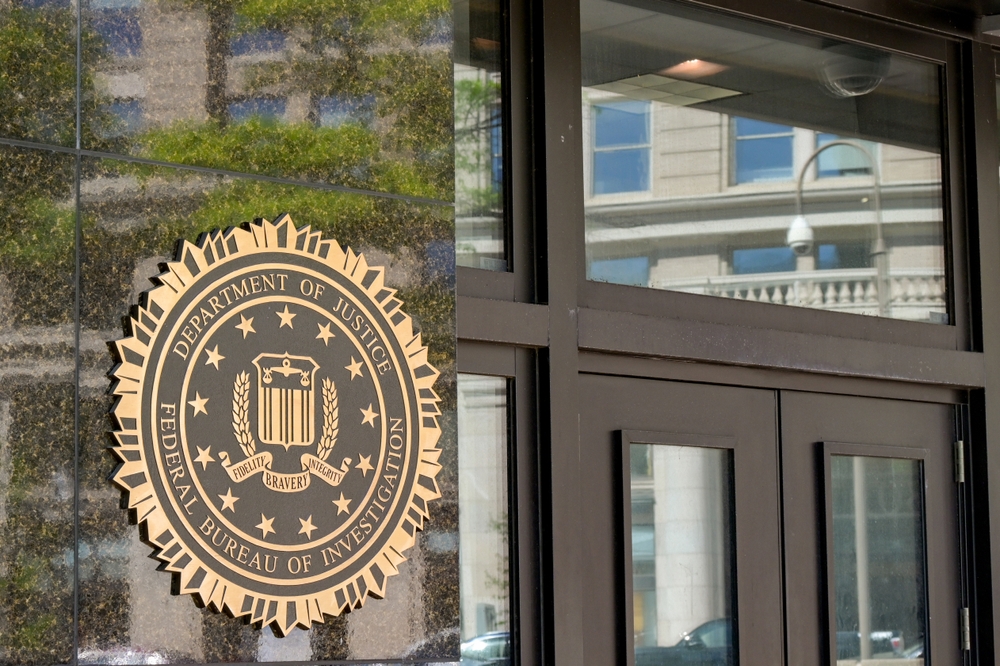FBI Settles Gender Discrimination Suit for $22M
The Federal Bureau of Investigation has agreed to pay more than $22 million to settle a class-action lawsuit alleging systemic gender discrimination against female recruits at its training academy in Quantico, Virginia.
The landmark case, filed in 2019 by 34 women, accused the FBI of unfairly dismissing female trainees and subjecting them to a hostile environment. The settlement, which must be approved by a federal judge, is one of the largest in the bureau’s history.
Plaintiffs claimed they were targeted for dismissal based on subjective criteria and experienced harassment from instructors, who made inappropriate comments about their bodies and personal lives. The lawsuit was first reported by NBC News.
Female recruits reportedly faced harsher scrutiny compared to male counterparts. Many women said instructors perceived them as “weak” and consistently rated their performance lower than male trainees.
One plaintiff recounted being told to “smile more” and faced repeated sexual advances. Another described an instructor who leered at her inappropriately. The lawsuit noted that the FBI had allowed a “Good Old Boy Network” to thrive within the academy.
As part of the agreement, the FBI committed to providing plaintiffs opportunities to continue their training. Those who successfully complete the program are guaranteed placement in one of their top three preferred field offices.
The bureau will also undergo a review by external experts to ensure fair evaluation processes for female recruits.
David J. Shaffer, the attorney representing the women, expressed hope for significant changes in the FBI’s culture and attitudes towards female agents.
“These problems are pervasive within the FBI, and the attitudes that created them were learned at the academy,” Shaffer said.
Paula Bird, the lead plaintiff, expressed satisfaction with the outcome. Bird, who interned with the FBI and has since become a practicing lawyer, said the settlement brings a measure of justice and hopes it will pave the way for future female recruits to have a fair chance at becoming FBI agents.
“It’s disappointing that the FBI, which I had aspired to be a part of for so long, ended up derailing my career trajectory,” Bird said. “But I’m hopeful this settlement will lead to positive changes for women in the agency.”
Despite efforts to diversify, men still constitute about 75% of the FBI’s special agents. An internal watchdog report from 2022 corroborated many of the lawsuit’s allegations, revealing that women accounted for 46% of all trainees dismissed from the academy between 2015 and 2020, despite making up only 25% of the total trainee population.
The settlement represents a critical step towards addressing gender discrimination within the FBI and serves as a reminder of ongoing challenges women face in law enforcement.
FBI Director Christopher Wray, who took office in 2017, has pledged to address these issues and improve diversity within the bureau.
“We are committed to fostering a work environment where all of our employees are valued and respected,” Wray said in a statement. “This settlement is an important step in our ongoing efforts to build a more inclusive FBI.”
The case has drawn attention to broader issues of gender discrimination in law enforcement agencies across the country. According to a 2019 report by the National Center for Women & Policing, women make up only 12.6% of all sworn law enforcement positions in the U.S.
Experts say increasing female representation in law enforcement can lead to improved community relations and reduced use of excessive force.
“Women officers are often better at defusing violent situations and are less likely to be involved in use of force incidents,” said Dr. Cara Rabe-Hemp, a criminal justice professor at Illinois State University. “Addressing gender discrimination in training academies is crucial for building more effective and representative police forces.”
The settlement also includes provisions for policy changes within the FBI. The bureau has agreed to revise its training evaluations to ensure they are based on objective criteria and to implement regular anti-discrimination training for all instructors at the academy.
As the FBI moves forward with its commitment to reform, advocates stress the importance of ongoing monitoring and transparency.
“This settlement is a good first step, but real change will require continued vigilance and a fundamental shift in culture,” said Jane Doe, executive director of Women in Federal Law Enforcement. “We’ll be watching closely to ensure the FBI follows through on its commitments.”
The case serves as a reminder of the ongoing work needed to ensure equal opportunities for women in law enforcement and the importance of addressing systemic discrimination in all its forms.




